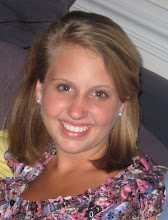Sunday, November 29, 2009
Bilinguals and Aphasia
This article is the most interesting article I found in doing my research. Along with Speech Pathology, I am also studying Spanish, so the issue of speech therapy and clients who are bilingual is a topic that I want to learn more about. In this article it states that there are 45,000 new cases of multilingual aphasia just in the United States. Because of the increasing number of multilingual people in the United States, there has been an increased need to find a way to help these clients. The recovery patterns of bilinguals have been studied, and while there are endless patterns that have been observed, there are six patterns that have been recognized. The six patterns are:
- Parallel-both languages improve to a similar extent.
- Differential-one language recovers better than the other
- Selective-only one language recovers
- Blended-inappropriate LM occurs
- Successive-complete recovery of one language comes before the other
- Antagonistic-the recovery of one language follows the opposite pattern of the other language
Singing and Aphasia
I found this article very interesting. It discussed how certain people suffering from aphasia are able to sing songs that are familiar to them, and how music can help in aphasia recovery. There were three experiments performed. In experiment one, each subject was asked to complete the words to familiar songs which they identified as having heard before prior to the experiment, both with and without the melodies. In experiment two, each subject listened to twenty unfamiliar songs with randomly assigned syntactic phrases and the subjects were asked to repeat the phrases with and without the melodies. In the third experiment, each subject listened to a simple melody. The melody was the combined with 32 excerpts from the unfamiliar songs in experiment two, then the excerpts were asked to be sung and spoken.
Results:
Experiment One:
The subject was able to recall 58.8% of the words while singing, and 30.5% of the words while speaking.
Experiment Two:
The subject was able to recall 8.3% of the words correctly with the melody, and 20% of the words without the melody.
Experiment Three:
The subject was able to recall the melody with 100% accuracy after hearing it played the first time. However, the subject was unable to recall any of the words with the melody, and while speaking the subject could produce 20% of the words.
Tuesday, October 6, 2009
What Is A Stroke?

Expressive aphasia commonly occurs in patients who have experienced a stroke. Most people have head the term stroke used many times, but may not know exactly what a stroke entails. I am one of those people so I decided to do some research on the topic to get a better understanding as to why a stroke would cause someone to suffer from expressive aphasia. A stroke occurs when a blood clot forms in blood vessel or artery, therefore brain cells begin to die thus causing brain damage. Depending on what area of the brain is damaged, there will be different effects from a stroke. In the case of patients suffering from aphasia, the speech section of their brain (shown to the right in orange). More that 2/3 of people who suffer from a stroke will experience some sort of disability afterwards. Here is a video of a man who suffered from a stroke, and as a result developed expressive aphasia. You can see the effects that a stroke have on this man, even after 7 years.
http://www.stroke.org/site/PageServer?pagename=STROKE
Monday, October 5, 2009
Aphasia Bill of Rights

On September 25, 2005 an Aphasia Bill of Rights was published by the National Aphasia Association, stating all of the rights that patients suffering from aphasia have. You may wonder why this was necessary, as did I, but as I read this website I learned that many people suffering from aphasia are never properly diagnosed and are unaware that what they are experiencing is an actual medical condition. Because of this, many patients would not receive benefits from their health care providers and would not receive the proper care necessary to improve their condition. The Executive Board of the National Aphasia Association (NAA) recognized this problem and therefore decided to set forth a bill of rights for those suffering from aphasia. These Bill of Rights state that people suffering from aphasia have the right to:
- Be immediately informed of their condition in a way in which they understand their condition and what the implications are.
- Have written documentation of their condition upon release from the hospital.
- Be informed of all resources available to them, both locally and nationally.
- Have outpatient therapy available as deemed necessary by a certified speech pathologist.
- Be informed if they are participating in a research project and give consent to the participation.
- Demand benefits from health care providers and health care facilities.
- Have access to all of the information they are receiving through a speech therapist or otherwise qualified personnel, taking into account all cultural and language barriers that may be present.
http://www.aphasia.org/docs/Bill%20of%20Rights.pdf
What Is Expressive Aphasia?

The website below gives a good general overview of what expressive aphasia is, it's causes, and known treatments. Expressive Aphasia is the inability to communicate with others through speech and written language. It is caused by damage to the brain, which can be caused by things such as strokes, head trauma, brain tumors, or dementia. The most effective treatment for this is to immediately start speech therapy. The treatment is very extensive, and generally patients will recover language skills but never fully regain the skills that involve expression. The following website gives a list of other websites that have more in depth information about expressive aphasia, including where and how to get help.
http://www.healthnewsflash.com/conditions/aphasia.php
Sunday, September 13, 2009
Subscribe to:
Comments (Atom)
